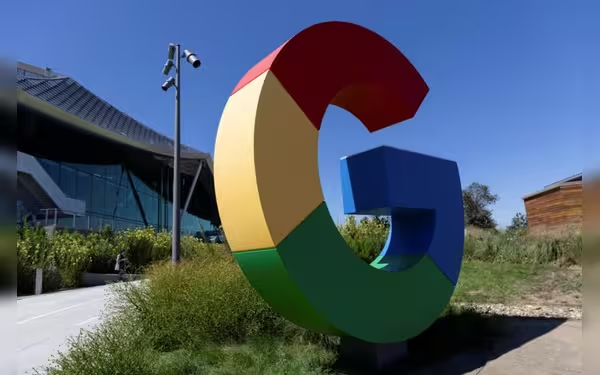Saturday, November 16, 2024 09:51 PM
Google Partners with Kairos Power for Nuclear Energy to Support AI Growth
- Google signs deal for electricity from small modular reactors.
- Nuclear energy crucial for AI's clean energy demands.
- SMRs expected to generate 500 MW by 2035.
 Image Credits: thefrontierpost
Image Credits: thefrontierpostGoogle collaborates with Kairos Power to utilize nuclear energy for meeting AI's growing electricity demands.
In a significant move towards sustainable energy, tech giant Google has recently signed a deal with California-based energy company Kairos Power. This agreement aims to source electricity from small modular reactors (SMRs) to meet the growing power demands of artificial intelligence (AI). As the world becomes increasingly reliant on AI technologies, the need for clean and reliable energy sources has never been more critical.
The deal comes shortly after the announcement that Three Mile Island, the site of the United States' most notorious nuclear accident, will resume operations to provide energy to Microsoft. This highlights a broader trend among major tech companies, including Microsoft and Amazon, as they expand their data center capabilities to support the AI revolution. These companies are actively seeking diverse sources of electricity to ensure they can meet the immense computing needs of AI.
According to Google’s senior director of energy and climate, nuclear energy is seen as a vital component in supporting clean growth and advancing AI technologies. He stated, "The grid needs these kinds of clean, reliable energy sources that can support the build-out of these technologies." This sentiment reflects a growing recognition of the role that nuclear power can play in providing consistent energy, especially when compared to more variable sources like solar and wind.
The first of the small modular reactors developed by Kairos Power is expected to be operational by the end of this decade, with additional reactors projected to come online through 2035. Together, these reactors are anticipated to generate a total of 500 megawatts (MW) of power. This development is particularly promising as SMRs are designed to be more compact and easier to deploy, which could facilitate a quicker transition to nuclear energy.
However, it is important to note that the technology is still in its early stages and has yet to receive full regulatory approval. This has led companies to explore existing nuclear power options while the SMR technology matures. Kairos co-founder and CEO Mike Laufer emphasized the significance of this partnership, stating that it allows for the technology to "mature and learn along the way."
As AI capabilities continue to expand, the demand for new, clean electricity sources becomes increasingly urgent. Google’s commitment to nuclear energy is part of a broader strategy to ensure that abundant carbon-free energy is available around the clock. This approach is not without its challenges, as nuclear energy faces opposition due to concerns about radioactive waste disposal and the potential for catastrophic accidents.
The history of nuclear energy in the United States is marked by caution, particularly following the 1979 partial meltdown at Three Mile Island, which raised significant public concern. Despite these challenges, many tech companies are betting on the rapid development of nuclear energy to meet the electricity demands of AI.
As the tech industry continues to evolve and the demand for AI grows, the partnership between Google and Kairos Power represents a pivotal step towards a more sustainable energy future. By investing in nuclear energy, these companies are not only addressing their immediate power needs but also contributing to a cleaner, more reliable energy landscape. The success of this initiative could pave the way for a new era of energy production, one that balances technological advancement with environmental responsibility.













